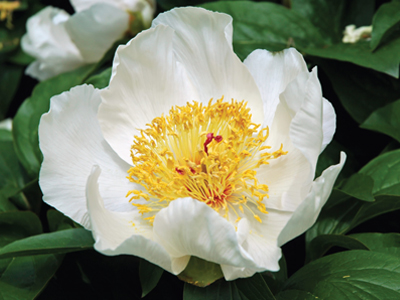Paeonia
Paeonia lactiflora – root
Paeonia has a long and varied history in both eastern and western traditions and was used in China to treat nervous complaints, muscular cramps, hypertension and menstrual irregularity in women. It is thought to be bitter, salty and cold but is more nourishing than red paeonia.
In the West, peonies were used for medicine as well as a source of inspiration for their artwork and in their gardens. During the middle ages in Europe peonies were used for everything from childbirth to warding off evil spirits. Paeonia was recommended to cure gall stones, control epileptic seizures, soothe teething pain and cure jaundice.
Actions
Primary: spasmolytic, skeletal muscle relaxant (mild), anticonvulsant.
Secondary: anti-inflammatory, cognition enhancing, antiallergic, oestogen modulating.
Indications
- Menstrual disorders.
- Relief of colic and muscular pain.
- Excessive perspiration, night sweats.
- Very commonly used for women’s disorders.
Contra-indications and Cautions
No known contraindications.
No toxicity effects have been reported for Paeonia.
Administration and Dosage
The analysis of contents below is a guide only, product specific data including expiry date is with the item in the shop.
Paeonia lactiflora 1:1. Each 1 ml contains 1,000mg of dry herb.
Liquid extract in 45% ethanol. Use 15 to 30 ml weekly.
Our clinic uses fluid extracts from Optimal Rx, Herbal Extract Company, Nutrition Care, Mediherb or Sunray Botanicals, in this order.
Notes
Indications
- Pre and post operative pain & spasm e.g. colonoscopy.
- Dysmenorrhoea.
- Polycystic ovarian syndrome.
- Hyperprolactinaemia (medication induced).
- Headaches and muscular spasm.
- Hepatic injury and toxicity.
- Cardiovascular disease (including angina, atherosclerosis & thrombosis).
- Oxidative stress and inflammatory disorders.
- Memory impairment.
- Epilepsy.


